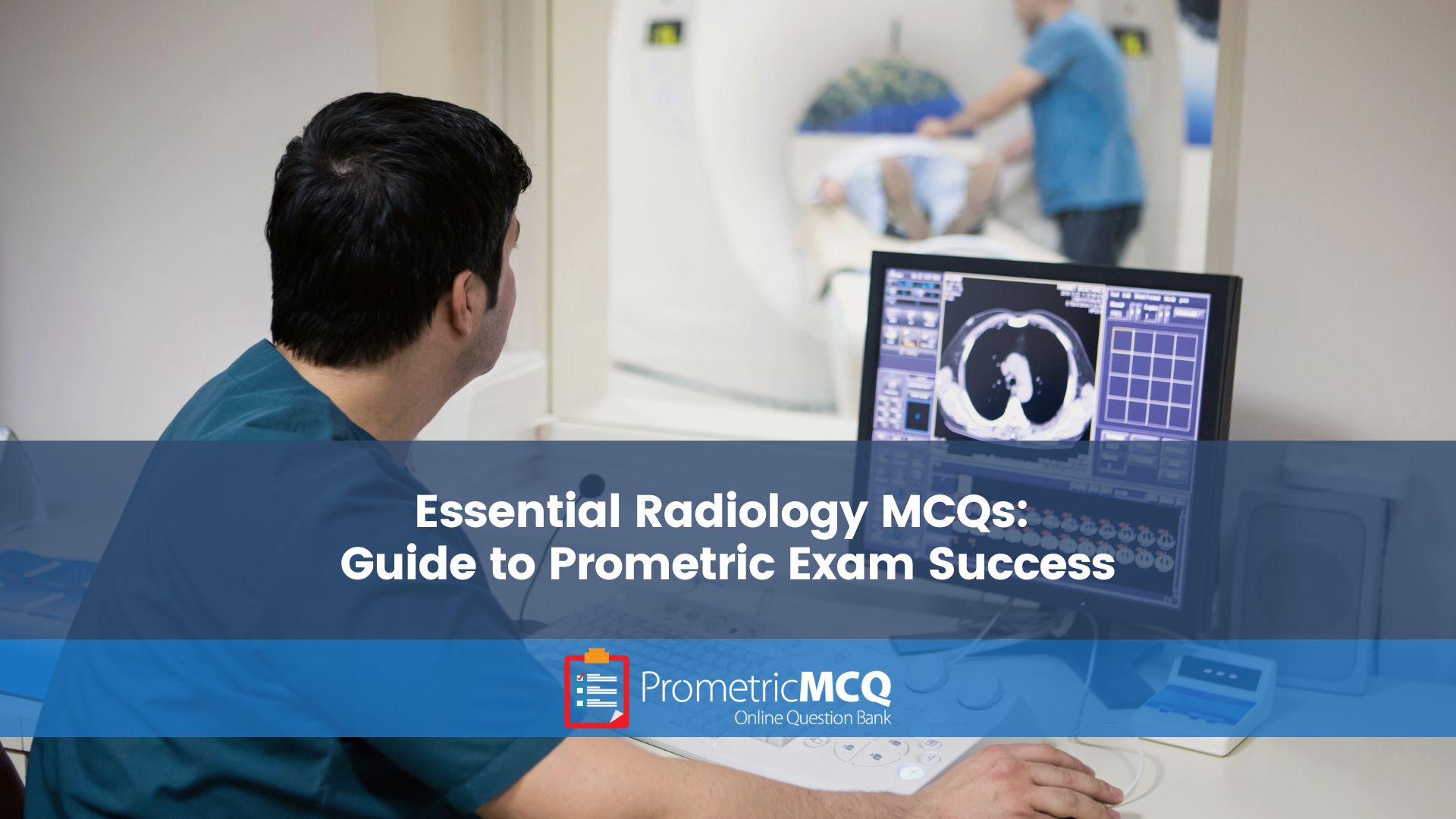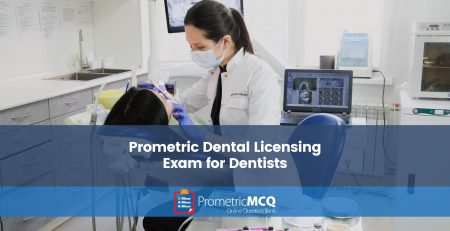Essential Radiology MCQs: Guide to Prometric Exam Success
Unlock Your Radiology Potential: Essential Radiology MCQs for Prometric Exam Success! Are you ready to elevate your radiology knowledge and ace the Prometric exam?
Whether you’re a seasoned medical professional or just beginning your journey in this dynamic field, mastering multiple-choice questions (MCQs) is crucial for success. In today’s fast-paced healthcare environment, a solid understanding of radiological concepts not only enhances patient care but also boosts your confidence as a practitioner.
This blog post serves as your comprehensive guide, packed with essential MCQs that will challenge and sharpen your skills. Get ready to dive into critical topics, uncover key insights, and pave the way toward achieving that coveted certification. Let’s embark on this exciting study adventure together—your path to Prometric exam triumph starts here!
Introduction to Prometric Exam and Radiology MCQs
Are you gearing up for the Prometric Exam? If you’re a radiology professional aiming to demonstrate your expertise, mastering Radiology MCQs is crucial. These multiple-choice questions are not just a test of knowledge; they’re an opportunity to refine your understanding and boost your confidence.
Navigating through Radiology can be daunting, but with the right preparation, you can conquer those exam nerves. Whether you’re a seasoned practitioner or just starting out in this field, familiarizing yourself with these essential questions will pave the way for success on test day. Let’s dive into everything you need to know about acing Radiology MCQs!
Benefits of Practicing Radiology MCQs
Practicing Radiology MCQs offers a powerful tool for reinforcing your knowledge. Engaging with these questions helps to clarify complex concepts within radiology. It allows you to identify areas where you excel and those that need further study.
Additionally, regular practice builds confidence. Familiarity with the format of MCQs can reduce anxiety on exam day. Knowing what to expect makes a significant difference in performance.
Time management is another crucial benefit. By working through timed MCQ sessions, you learn to allocate your time effectively during the actual exam. This skill can be vital in ensuring you complete all questions without feeling rushed.
Moreover, practicing Radiology MCQs exposes you to diverse topics and scenarios that might appear in exams. This variety not only enhances learning but also keeps preparation engaging and dynamic, making it easier to retain information long-term.
Types of Radiology MCQs
Radiology MCQs come in various formats, catering to different aspects of the field. One common type is the clinical scenario question. These questions present a real-world case where you must apply your knowledge to diagnose or suggest treatment.
Another format focuses on imaging modalities. Here, you may be asked about X-rays, CT scans, MRIs, or ultrasounds and their specific uses in diagnosis.
Theoretical questions also play a significant role. They test your understanding of fundamental principles like radiation physics and safety protocols.
Additionally, there are image-based questions that challenge you to interpret actual radiographic images. This helps hone your observational skills essential for any Radiologist.
Lastly, some MCQs cover advancements in technology and research findings. Staying updated with recent developments can boost your performance on these types of questions significantly.
Tips for Answering Radiology MCQs
When tackling Radiology MCQs, read each question carefully. Understand what is being asked before jumping to the options.
Look for keywords that can guide your thought process. Terms like ‘most likely’ or ‘best describes’ give clues about what the examiners want.
Eliminate clearly wrong answers first. Narrowing down choices increases your chances of selecting the correct one.
Time management is crucial during exams. Don’t dwell too long on a single question; mark it and move on if you’re unsure.
Practice makes perfect, so engage with as many MCQs as possible in your study routine. Familiarity builds confidence and improves performance under pressure.
Lastly, stay calm and focused throughout the exam. A clear mind enhances decision-making skills when faced with tricky questions.
Common Mistakes to Avoid in Radiology MCQs
One common mistake candidates make is rushing through the questions. Taking your time can help you think critically and avoid careless errors.
Another pitfall is misreading the question stem. Pay close attention to keywords that indicate what is being asked, as this can change the entire meaning of a question.
Many students also struggle with answer choices that seem similar. It’s crucial to differentiate between closely related options by focusing on specific details provided in the question.
Neglecting to review answers before submitting can lead to missed opportunities for corrections. If time allows, revisit challenging questions to ensure accuracy.
Lastly, don’t underestimate the importance of practice tests. They familiarize you with question formats and help identify areas where improvement is needed while reinforcing knowledge retention through repetition.
Sample Questions and Answers for Practice
Practicing with sample questions is a key strategy in mastering Radiology MCQs. These questions not only test your knowledge but also familiarize you with the exam format.
For example, consider this question: ‘What imaging modality is most effective for detecting pulmonary embolism?’ The answer would be CT Angiography, as it’s widely recognized for its accuracy in such cases.
Here’s another one: ‘Which type of contrast agent is commonly used during MRI scans?’ The correct response here is gadolinium-based agents, which enhance image quality and detail.
These examples illustrate the kind of critical thinking required on the Prometric Exam. Working through a variety of scenarios will sharpen your skills and boost confidence when exam day arrives. Embrace these practice questions to refine your approach and deepen your understanding of radiological principles.
Additional Resources for Exam Preparation
To enhance your preparation for the Prometric Exam, consider utilizing a variety of resources. Online platforms offer comprehensive courses tailored specifically for radiology. These often include video lectures, interactive quizzes, and forums where you can discuss topics with peers.
Textbooks dedicated to radiology fundamentals are invaluable. Seek out those that provide practice MCQs at the end of each chapter. This will allow you to test your understanding progressively.
Mobile apps focused on medical exams can be quite handy as well. They enable quick reviews and practice sessions while you’re on the go.
Don’t forget about webinars hosted by experienced radiologists or educators in the field. Engaging in these live discussions can deepen your knowledge and clarify complex concepts.
Lastly, join study groups or online communities related to radiology MCQs for sharing insights and strategies with fellow candidates. Connecting with others adds an extra layer of support during this challenging journey.
Conclusion and Final Thoughts.
Success in the Prometric Exam hinges on your preparation, and mastering Radiology MCQs is a key part of that journey. By practicing these questions, you not only reinforce your knowledge but also familiarize yourself with the exam format. Remember to analyze each question carefully and avoid common pitfalls.
Utilizing diverse resources will enhance your study experience. Engage with sample questions, participate in group discussions, or seek guidance from mentors in the field. Every bit of practice adds to your confidence on exam day.
Your dedication today lays the foundation for tomorrow’s achievements. Embrace this challenge as an opportunity for growth—every MCQ brings you one step closer to success in radiology. Continue honing your skills and stay curious; that mindset will serve you well throughout your career.









